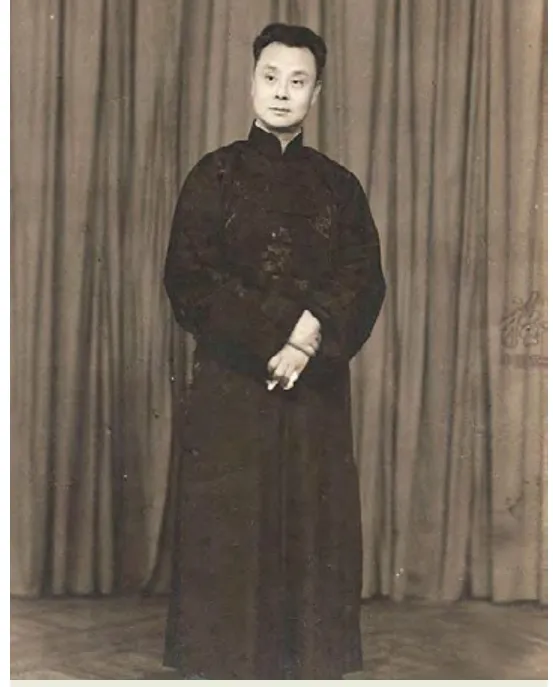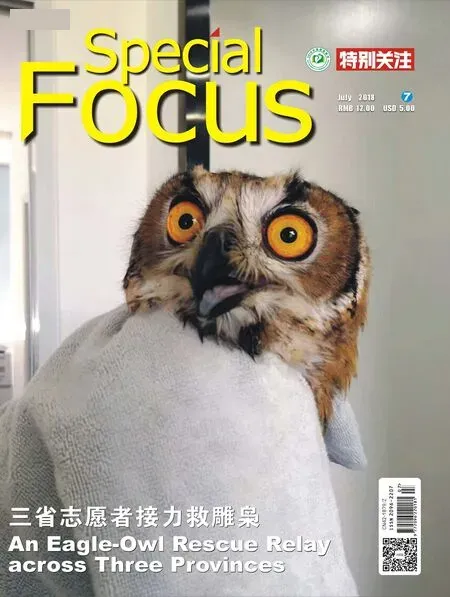Gai Jiaotian Learns Peking Opera
By Qin Lyuzhi
Apart from practicing his crafts, Gai Jiaotian,a Peking Opera artist,spent most of his time on deep meditation. However, he was not simply sitting around doing nothing—he was thinking about his opera, and the “logic” behind it.
He got into the habit of thinking this way when he was a kid. He remarked, “When I was young, my teacher wouldn’t tell me directly what to do. Instead, he would guide me to the answer.”
When Gai learned the Opera Wu Song Fights the Tiger,his teacher asked him several questions.
“How old is Wu Song?” The teacher asked.
When Gai gave the answer,another question immediately came, “What is he doing now?”
“He’s leaving home,” Gai answered.
“Why?” Gai thought for a while and answered, “Because of the famine in his hometown, Wu has to find food.”
The teacher quizzed, “Think about it carefully, Gai. Is he hungry before he gets food?”
“Of course he’s hungry,” Gai answered.
The teacher followed up the question by asking, “How would a person walk when he’s hungry?”
It was noon at that point and Gai was famished. He hadn’t eaten anything since he woke up. He was so hungry that he was about to faint, so the teacher gave him a break, letting him have a bite to eat. After lunch, the teacher asked if he remembered how he walked when he was hungry. Gai affirmed that he did.The teacher then asked him to walk the same way. Gai tried to walk while thinking of how he felt when he was hungry.
The old version of Wu Song Fights the Tiger starts from the point in the story where Wu Song leaves his hometown. He is starving when he is on the way to find Chai Jin. The reason why the teacher asked Gai so many questions was to guide him to feel where Wu Song was at. With the first-hand experience of extreme hunger, Gai understood how to present that same feeling on stage.
(From Interview with Gai Jiaotian, Shanghai People’s Publishing House. Translation:Yu Lan)

盖叫天与他的师父Gai Jiaotian and his teacher

Gai Jiaotian (1888-1971),also known as Zhang Yingjie and Yannan,was born in Gaoyang County, Hebei Province.Gai specialized in the role of Wusheng (male characters who appear in battle scenes). He created a unique Gai style by combining traits from Peking opera, Kunqu and other local operas as well as martial arts.
Gai, who spent most of his career in Shanghai and Hangzhou, was most famous for the role of Wu Song (a fictional hero in the Water Margin,one of the four most famous classical works of Chinese literature).
盖叫天学戏
文/秦绿枝
京剧表演艺术家盖叫天每天除了练功,其余时间大部分消磨在沉思里。你以为他就是呆坐在那里么?不是,他是在想他的戏,想戏里面的“理”。
这是他自小学戏延续下来的。盖叫天说:“那时候师父教戏,不会爽爽快快地教你,而是先跟你绕上一大圈儿。”
他学《武松打虎》时,师父先把他叫去,问:“武松几岁了?”盖叫天作答后,师父又问:“他现在干什么?”盖叫天答:“出门”;再问:“出门干什么?”盖叫天想了想,说是因为家乡闹饥荒,出门找饭吃。师父说:“这就好了,你再想想看,饭没有找到之前,肚子饿不饿?”盖叫天说:“当然饿。”师父说:“那么饿的时候,走路是副什么样子?”问这话的时候,已经是中午了,盖叫天一早起来练功,直到此刻还滴水未进,被师父一提,顿时觉得肚子空得难受,人也有点支撑不住,晃晃荡荡。于是,师父关照他吃饭去。吃完了饭,师父再把他叫去,问他吃饱了没有。接着,师父又问他:“刚才没有吃饭的样子记得么?”盖叫天说:“记得的。”师父说:“既然记得,那么你现在做给我看看。”盖叫天便回味着饭前挨饿的情景做了一遍。

原来,老本子的《武松打虎》是从武松离乡开始的,一上来,武松是带着一种饥饿难当的心情去找柴进的。师父跟盖叫天兜上这么大的一个圈子,目的就是要他领会武松当时的处境,加上盖叫天自己挨饿的经验,这样,到了台上,便显得真实了。

